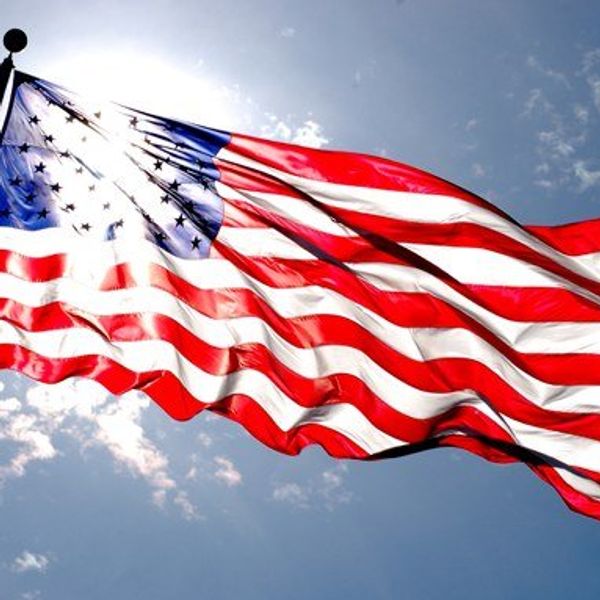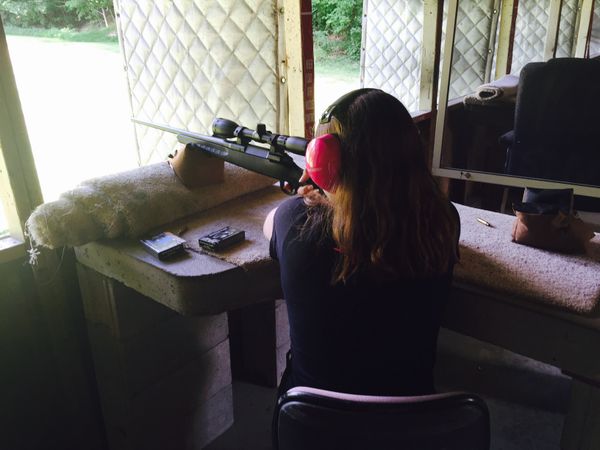If you turn on a television news channel, glance at the sidebar of your Facebook news feed, or pick up a national newspaper, you'll see it; evidence of the seemingly never-ending verbal battle between Republican Presidential Candidate Donald Trump and Democrat Hillary Clinton. It is evident that politics thrives on disagreement; however, the language used during this election season has waded into uncharted rhetorical waters. Vulgar insults have been slung, broad generalizations have been swept across minority groups, individuals have been attacked on the basis of their personal identities, and most recently, blatant sexual harassment has been swept under the rug as "locker room talk". In general, the American public seems to have become desensitized to this behavior. But, how do the "shock value" statements of presidential candidates and other influential public figures affect America's youngest citizens?
Think about how the mind of a child works. We've all heard the phrase "monkey see, monkey do"; children learn from imitation. When a child hears their parents use a swear word when they're frustrated, it's likely that word will find its way into their vocabulary at some point. Now, apply that idea to the situation at hand. For example, if a young person watches a high-profile figure make fun of an individual with a disability on television, they may be lead to believe this behavior is acceptable and imitate it within their peer group. Children without strong mentoring relationships were particularly likely to fall into this trap. However, many argue that this is just rhetoric, an essential part of campaigning. Politicians do it all the time to garner votes or publicity. No one ever stops them from saying these things. Therefore, it's totally harmless, right?
Wrong. These statements are more than just rhetoric; for the groups they target, they can become reality. We must learn to understand how insidious these ideas and behaviors are. The child I mentioned before, who mimicked a public figure harassing a disabled person, has now potentially spread a negative stereotype through his or her community. Soon, other children pick up on this idea, and a child who lives with a disability becomes the victim of their bullying, which may drastically alter his or her self-image. It's easy to see how the so-called "boldness" and "unconventional speech" of one person can trickle down through the layers of a society, negatively affecting its youngest members.
Over and over, the cycle continues. Many times, when a new statement is made targeting a group of people, reports pop up of incidents like the hypothetical one I described above. Hispanic children are followed on the street and told to "go back where they came from". Muslim teens call suicide hotlines after being physically harassed and called names like "terrorist". Victims of sexual assault are forced to endure endless name calling and have their cases dismissed as a publicity stunt. Take the incident that occurred in Indiana this past spring; a CNN article reports that a heavily Hispanic high school basketball team was taunted by members of the opposing team's fan section with anti-Latino phrases first used by a presidential candidate. The administration of the harassers' school was quick to end the chants, but the real issue is that students were motivated to do this in the first place. These events just add to the staggering pile of evidence pointing towards the negative ways brash political speech is changing the daily lives of America's youth.
It must be noted that this extravagant language is not exclusive to one political party or group of individuals. It has popped up in all corners of the political spectrum. And it's obvious why; flashy, extreme rhetoric is attractive. It is appealing to seasoned followers of politics, as well as those who have never voted before. It draws a large crowd, which means more votes, which leads to a potential victory. But, will we as Americans allow our children's emotional and physical well-being be exchanged for a few thousand votes? Furthermore, by passively letting politicians and influential members of society openly use this kind of language, what are we saying about our values?
Although I am only eighteen years old and my worldview has just recently begun to open up, I am genuinely frightened by what I hear when I turn on a presidential debate. I sincerely hope that we as citizens of the United States can gather the courage to say a firm, resounding no to these hateful words. For our children, for our well-being, and for the future of America.





















